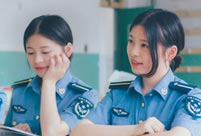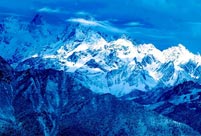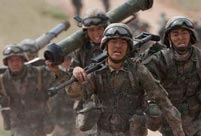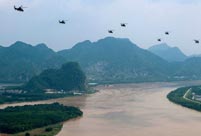

 |
| Jan Thompson |
We hope that Prime Minister Abe will acknowledge Japan’s war time aggression by using examples of what really did happen.
My father was a prisoner of war (POW) and was “surrendered” on Corregidor Island about a month after Bataan had surrendered. My father was not on the Bataan Death March, but never the less encountered many hardships as a POW of Imperial Japan. His most difficult period as a POW was when he was being transported on the hell ships.
The Imperial Japanese transported POWs to Japan and China for slave labor. These ships were unmarked and as a result were targets for American planes and submarines.
He was on three of these ships because each had been attacked by Navy bombers. The first hell-ship he was on is infamous-the Oryoku Maru. The Japanese Guards forced over 1600 men down in the hulls. The ship was baking in the tropical sun and temperature reached over 100 degrees-the Japanese guards closed the hatch covers above because the men were begging and screaming for water and air. Men suffocated-many became deranged-some killed each other because they had gone insane.
That is just one example of many of what POWs had to endure on the hell ships. Over 14,000 men died on the hell ships.
My father never really spoke of his POW experiences. So when I became an adult I started to do research. I was surprised to learn many things—information that is not in history books sadly.
So I have dedicated nearly 25 years of my life to try and get this information out the best I can. I am documentary film maker-so my best tools are my films.
So far I have produced 2:
Never The Same: The Prisoner of War Experience
I have interviewed nearly 100 men. Depending on the story and situation the men had different views of the Imperial Japanese. Those men who had been on the Bataan Death March described their captors as cruel. The American and Filipino soldiers were exhausted from battle-many had wounds-yet they were forced to march in the hot tropical sun. The Japanese Guards would not let them help each other (carry their friends) or even try and get water. When the POWs tried to run for water in nearby streams they were shot, bayoneted or beheaded. Some of the POWs were deliberately run over by Japanese trucks and tanks.
There were more Filipino deaths, nearly 10,000 than American. When these POWs finally reached their destination, Camp O’Donnell, more men died. The prison camp did not have adequate water or food or sanitation.
We hope that Prime Minister Abe will acknowledge Japan’s war time aggression by using examples of what really did happen. Perhaps the story of the Bataan Death March or the Palawan Massacre, the hell ships, or that the major companies in Japan used POWs as slave labor.
We do not want a statement that is vague and appears to continue to cover-up the events of World War II. We do not want him just to say that many lost their lives. Imperial Japan started the war in the Pacific. Imperial Japan was the aggressor.
We want to have Japan to continue the Japan/POW Friendship program. Prime Minister Abe has an opportunity to show that this program has been successful as a tool for reconciliation. But Japan has to expand the program and not let it be part of the yearly budget. They have invited only 31 American POWs. In the 1990’s they invited over 600 from other countries.
It needs to be a part of an educational Trust Fund dedicated to teaching the accurate history of World War II.
Ideally, there would be an International Board where members are from several of the countries that Japan invaded. I was invited to participate on the first Japan/POW Friendship Trip. It became obvious that present day Japanese are not taught the true history of WWII. There is a movement trying to do it--but it is very small. The young Japanese I met were horrified to learn what their country had done--was capable of doing. I do believe that youth can help turn this around if we could get them involved.
Germany has set-up educational programs. Germany has mandated that their Dark chapter be taught in their schools
No country can run from their history. Japan cannot run from their World War II history. We see this as a historic moment not just for Japan but the rest of the world. Japan needs to open the door and shed light on their dark chapter by doing so I believe the world will in turn see them as the great nation they want to be.
The author is President of American Defenders of Bataan & Corregdor Memorial Society and Professor at the Radio-Television-Digital Media Department of Southern Illinois University
 Abandoned village swallowed by nature
Abandoned village swallowed by nature Graduation: the time to show beauty in strength
Graduation: the time to show beauty in strength School life of students in a military college
School life of students in a military college Top 16 Chinese cities with the best air quality in 2014
Top 16 Chinese cities with the best air quality in 2014 Mysterious “sky road” in Mount Dawagengzha
Mysterious “sky road” in Mount Dawagengzha Students with Weifang Medical University take graduation photos
Students with Weifang Medical University take graduation photos PLA soldiers conduct 10-kilometer long range raid
PLA soldiers conduct 10-kilometer long range raid Stars who aced national exams
Stars who aced national exams
 PLA helicopters travel 2,000 kilometers in maneuver drill
PLA helicopters travel 2,000 kilometers in maneuver drill Hillary’s speech offers clue to Sino-US ties
Hillary’s speech offers clue to Sino-US ties Make me a genius
Make me a genius Weak yen weighing on China’s exports
Weak yen weighing on China’s exportsDay|Week